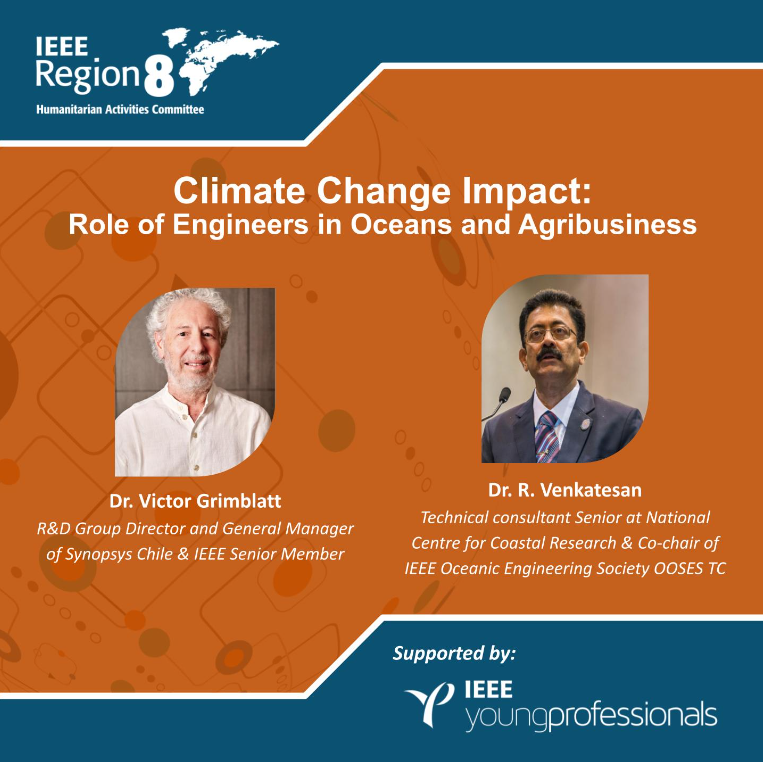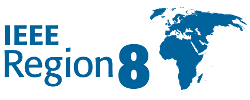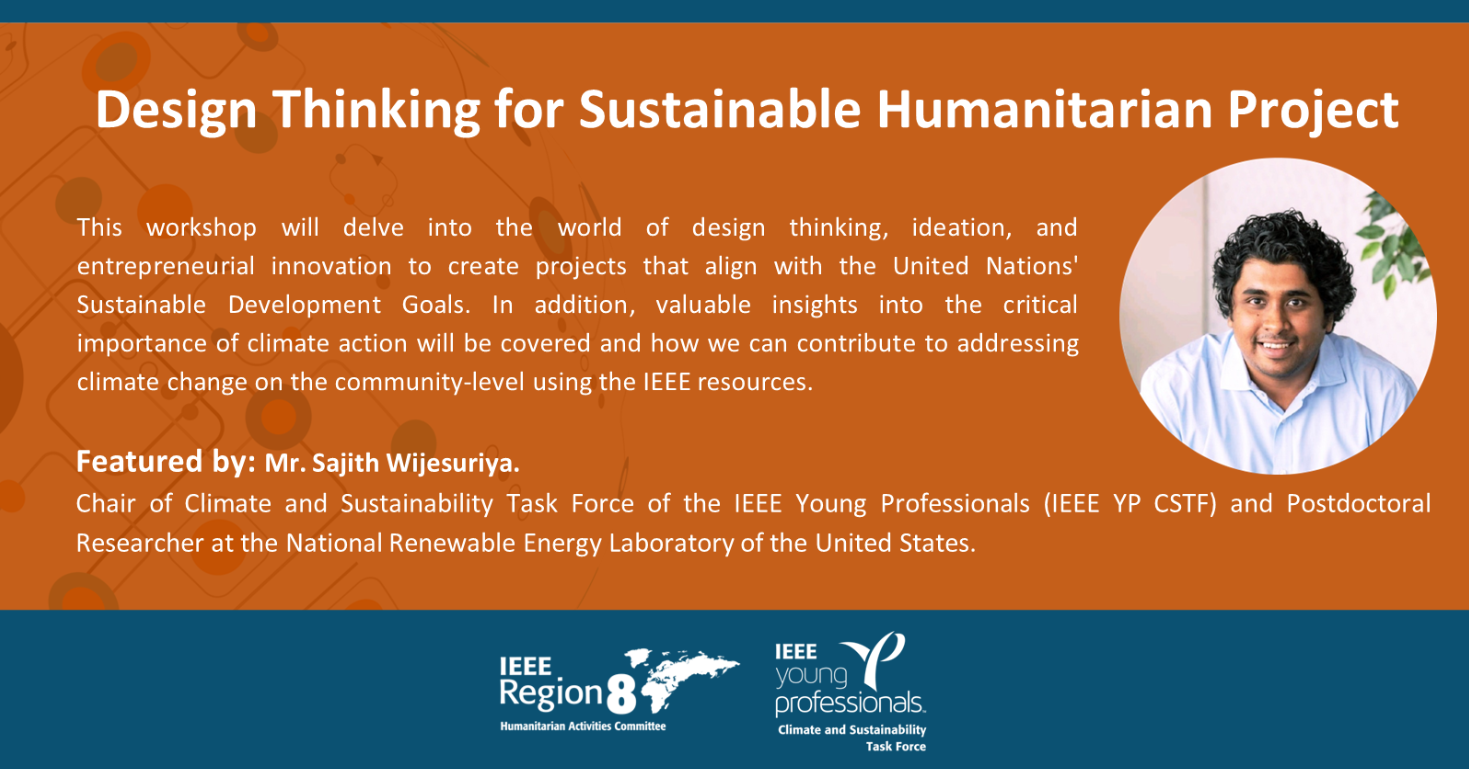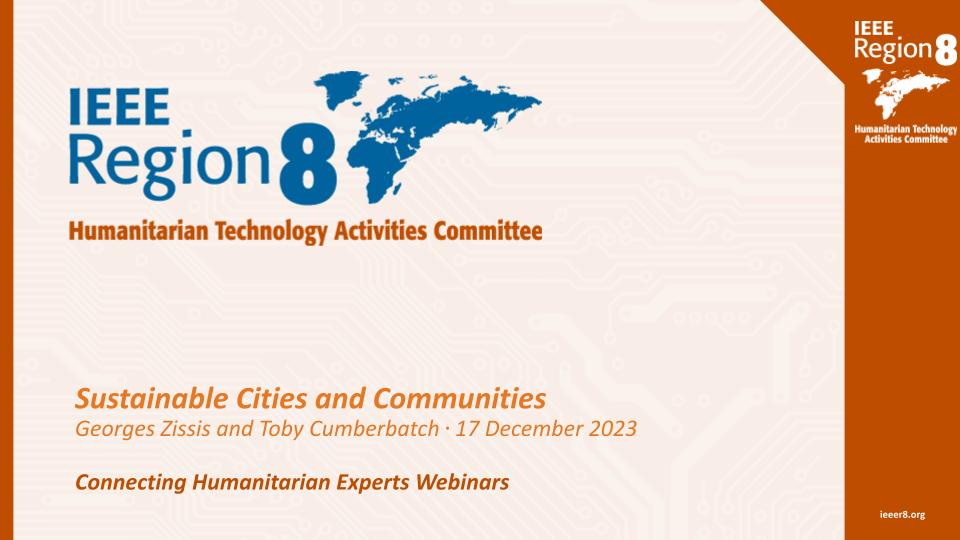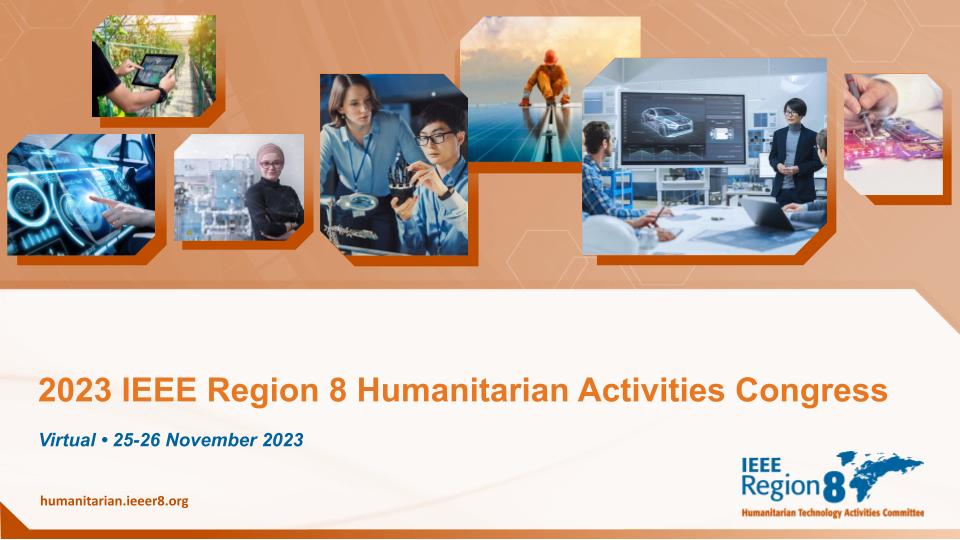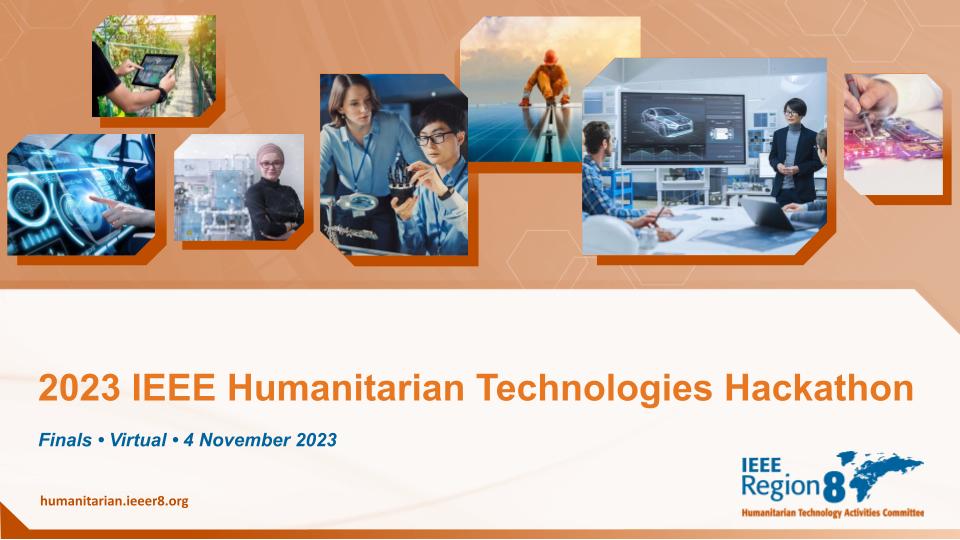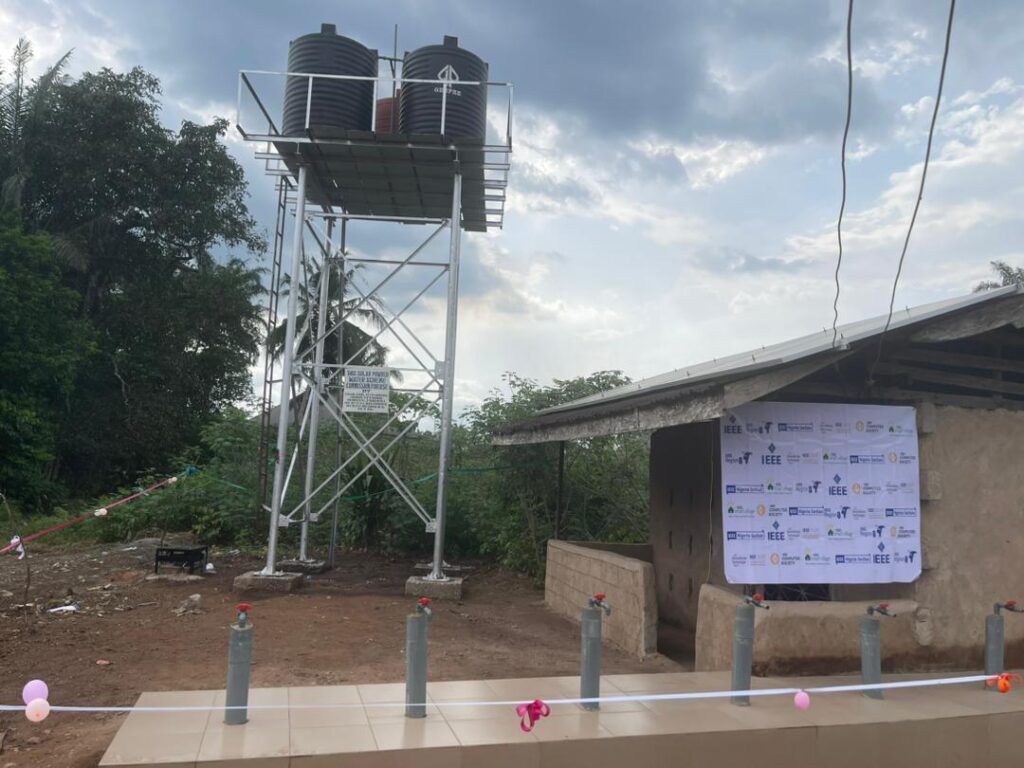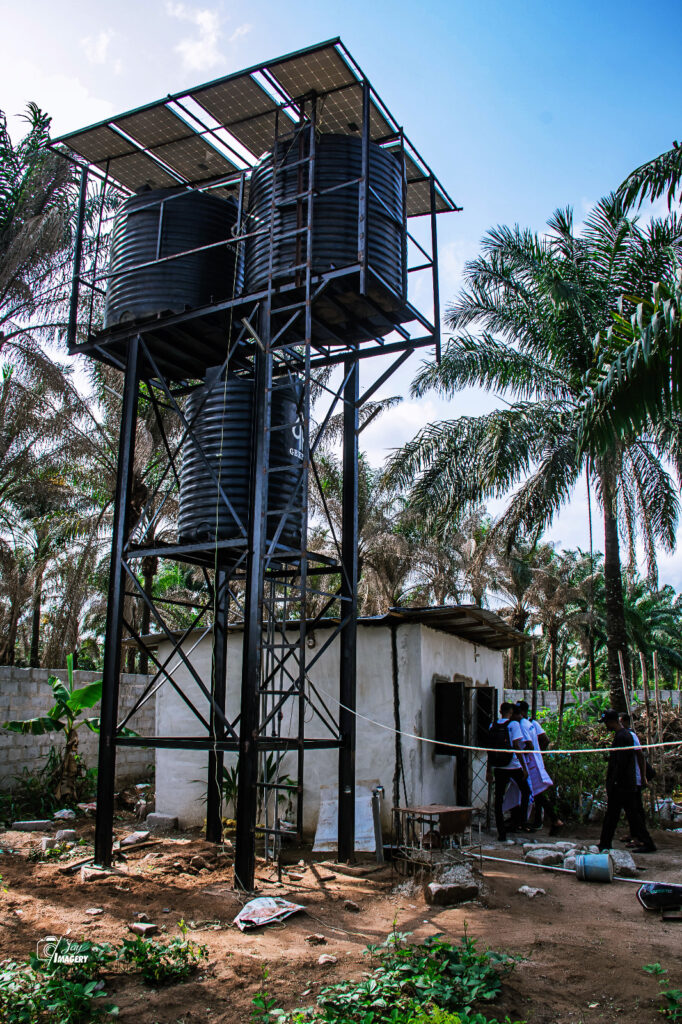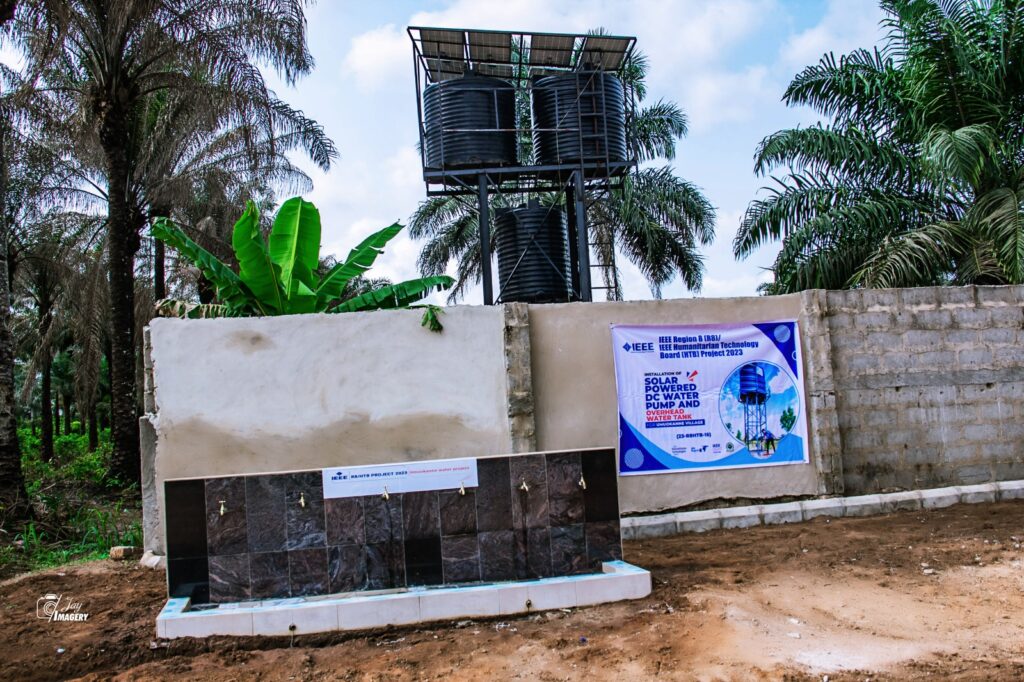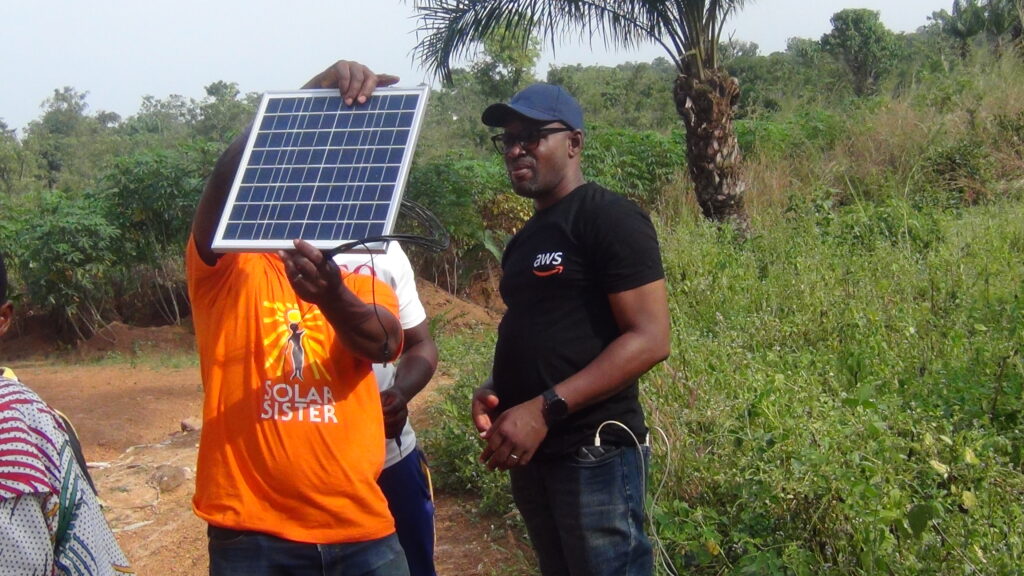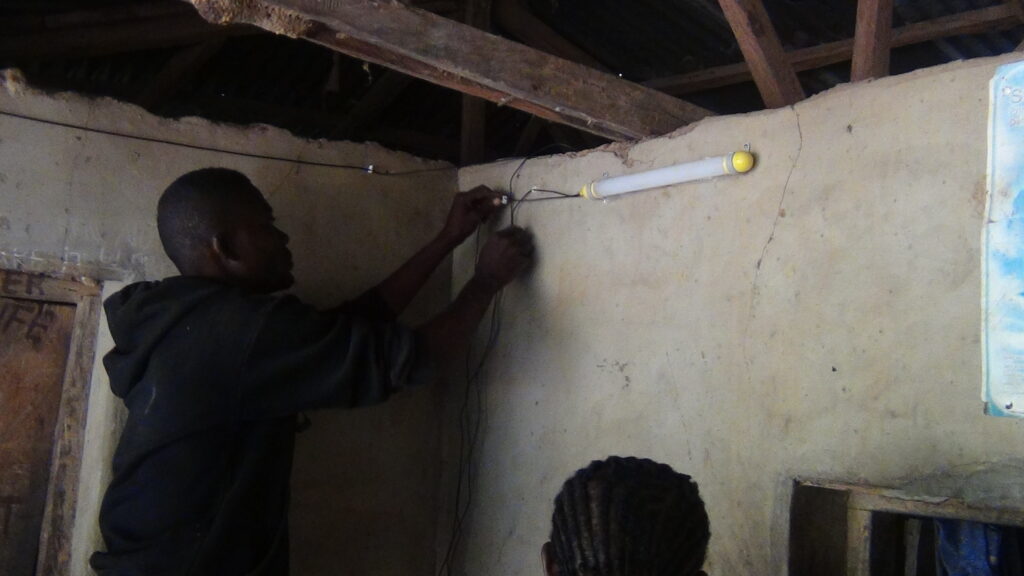Climate Change Impact: Role of Engineers in Oceans and Agribusiness
Neemat Abdelrahim, IEEE Region 8 Humanitarian Activities Committee
The Connecting Humanitarian Experts of IEEE Region 8 Humanitarian Activities Committee consists of a quarterly webinar on humanitarian topics, hosted by a subject matter expert in the area. The goal of the webinar is to gain an understanding of how we may achieve the SDGs and the role that humanitarians play in attaining them from an engineering and technological standpoint. The second webinar of this series was a gateway to agribusiness impact on climate change and climate change impact on agribusiness focusing on the role of technology, as well as to the oceans life below water focusing on the climate change challenges and the role of engineers. All in all, Dr. R. Venkatesan and Victor Grimblatt discussed the “Climate Change Impact: Roles of Engineers in Oceans and Agribusiness.”
The importance of teamwork, sustainable use, technological innovation, and conservation and restoration were emphasized in the webinar discussions. To build a future that is more resilient and sustainable, it is critical that individuals, groups, and governments give priority to initiatives that protect and conserve life below the surface. In addition, to share effective projects, encourage participation, and increase understanding of the significance of reaching zero hunger and also the discussion highlighted the importance of conservation and restoration, sustainable use, technological innovation, and collaboration. It is important for governments, organizations, and individuals to prioritize efforts aimed at protecting and conserving life below water in order to create a more sustainable and resilient future.
